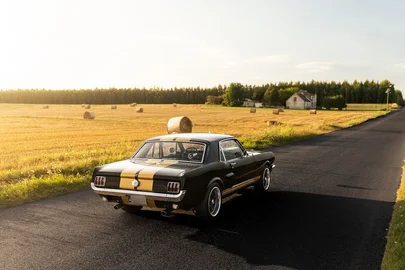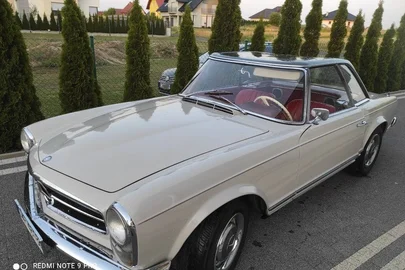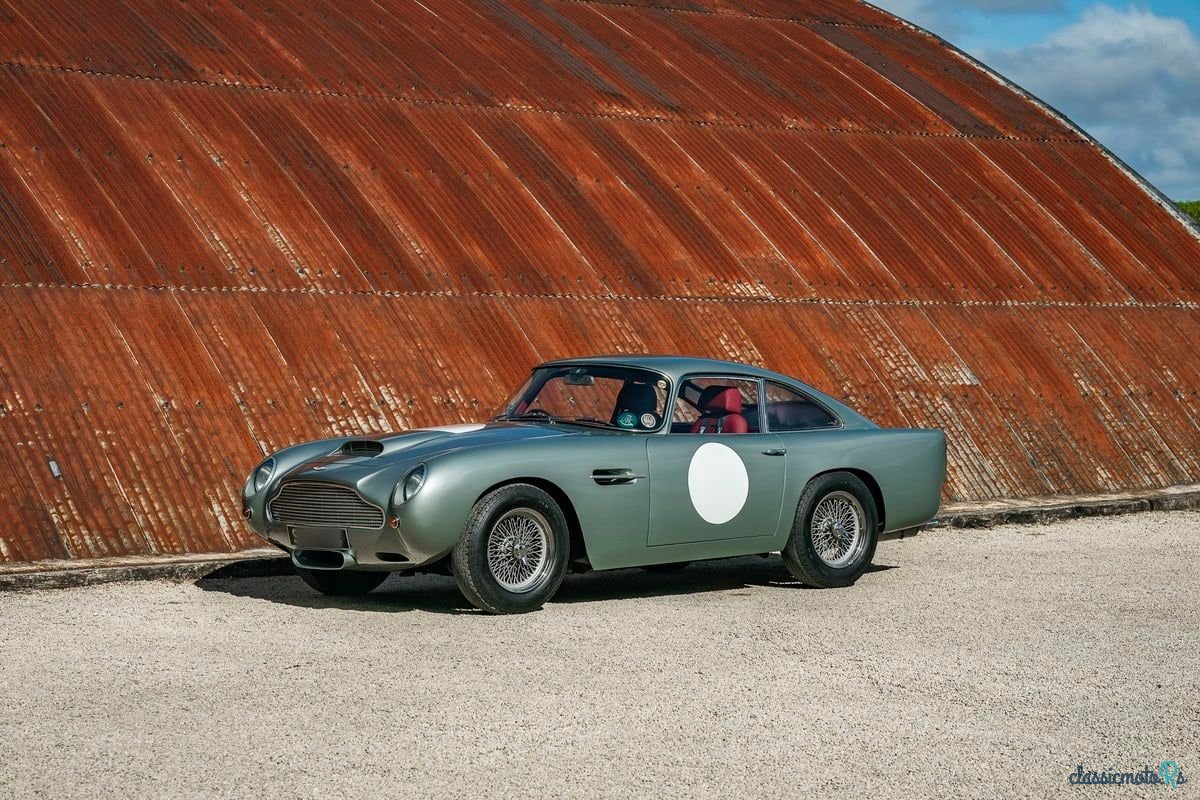
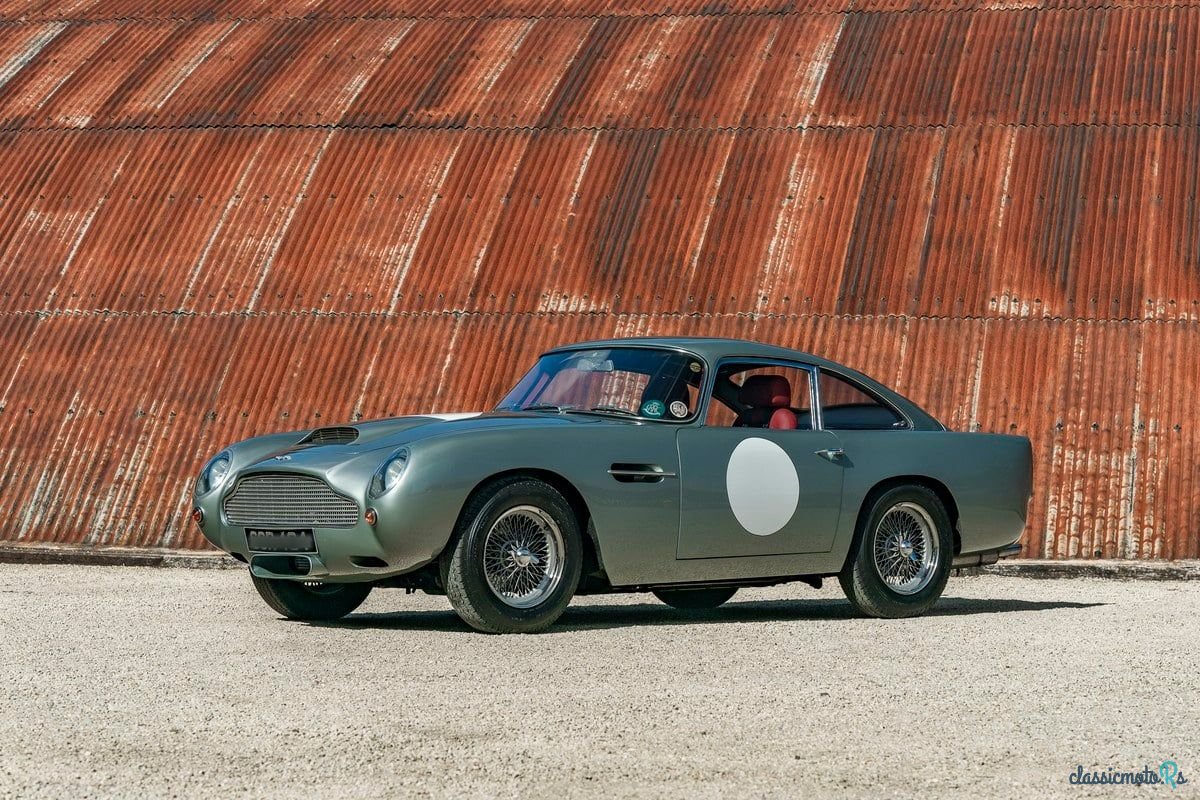
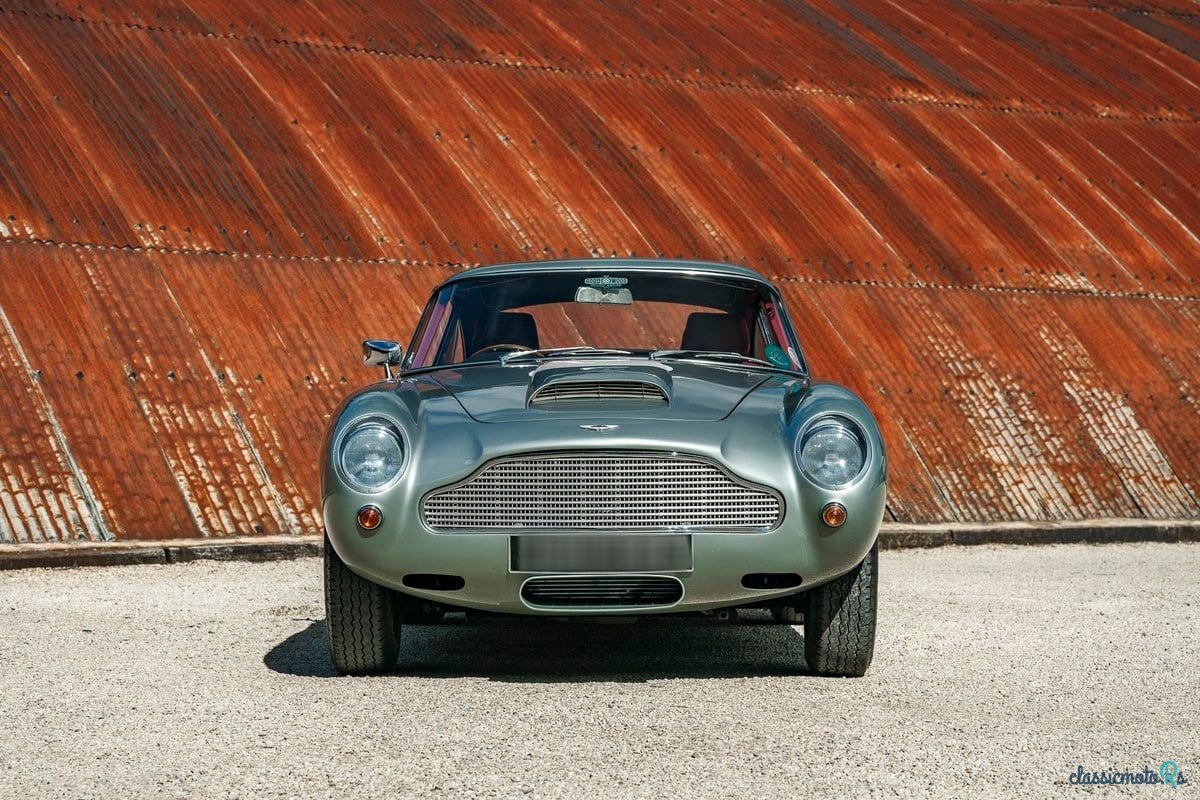
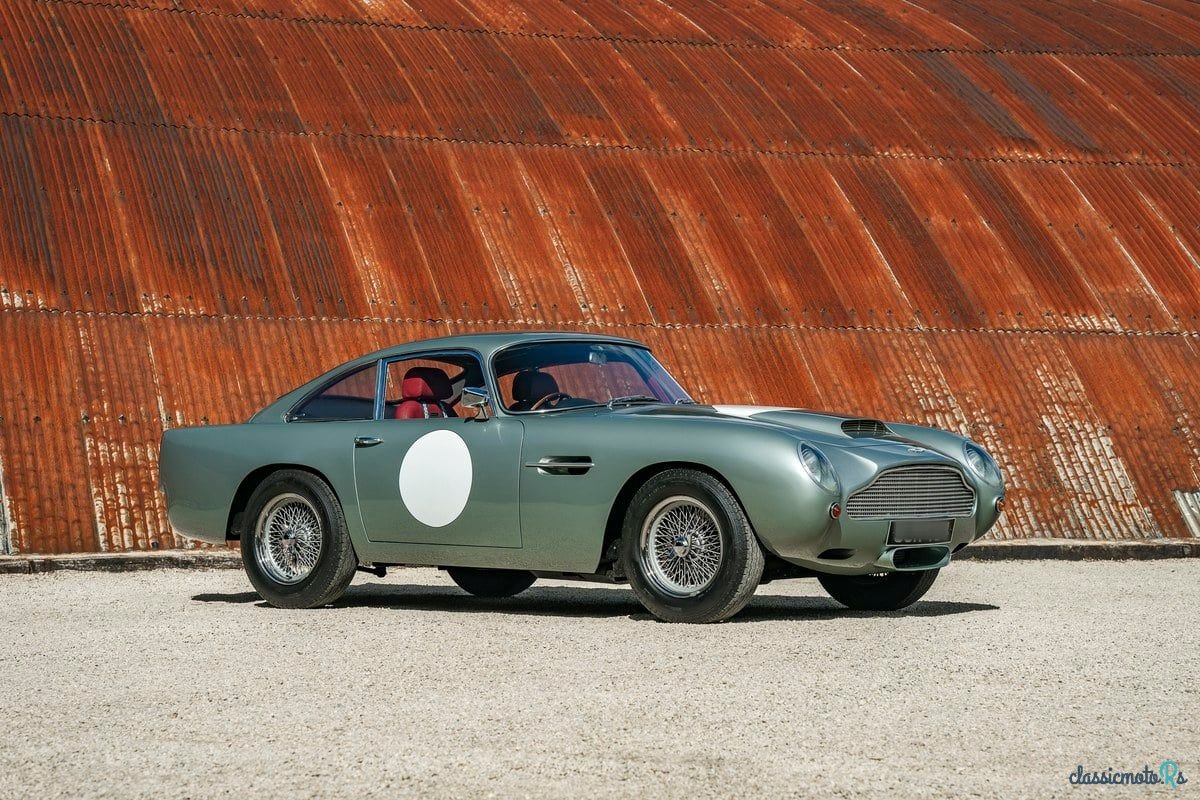

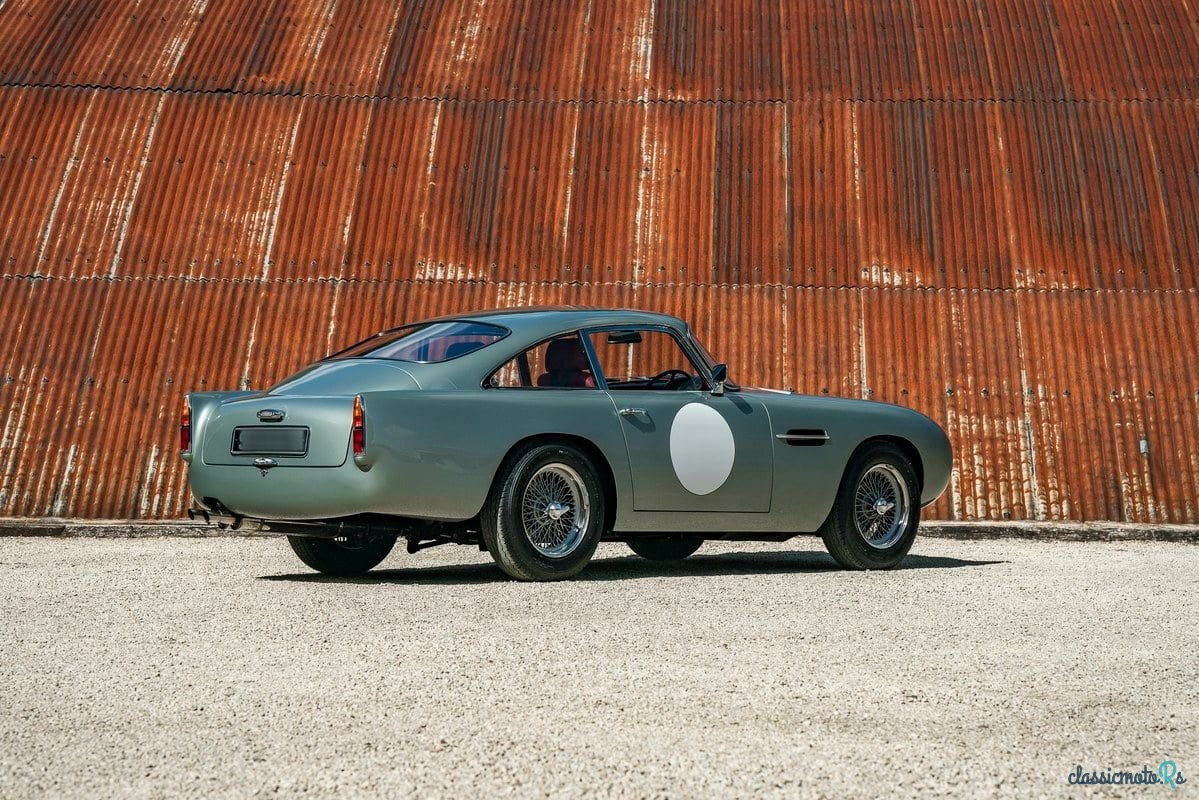
6 photos
1962' Aston Martin DB4
Report This Ad!Rate This!Bookmark This
£495,000Published 26 May 2024ID: LmBW0i
Expired
1 year, 8 months ago
1 year, 8 months ago
Information from the owner
Body: Convertible
Age: 62 years
Fuel: Petrol
Transmission: Manual
Exterior color: Silver
Seller's comments about 1962' Aston Martin DB4
1962 Aston Martin DB4 Series IV for sale
Restored to full GT specification by Goldsmith & Young
Engine rebuilt to 4. 7 litres by RS Williams
Dyno-tested at 349bhp
VEHICLE DESCRIPTION
This beautifully presented Aston Martin DB4 Series IV was rebuilt to full GT specification by marque specialist Goldsmith & Young, since when it has been maintained regardless of cost.
Chassis number DB4/ 813/ R was first registered on 10 February 1962, with the same number that it still wears today – SGR 404. Finished in Black Pearl with red trim, it was sold new to Levey’s Wallpaper Stores Ltd in Newcastle upon Tyne. In February 1964, it was acquired by a new owner who was based in London, and the original log book records its ownership history up to the early 1970s.
Its conversion to GT specification was carried out during 2011-12, and involved far more than just upgrading the mechanical components. The car was shortened by five inches to match the dimensions of the GT, and the boot floor was changed to GT spec, with the spare wheel mounted over a 100-litre polished-aluminium fuel tank.
The six-cylinder engine was initially bored out to 4. 2 litres and fitted with a twin-plug cylinder head. The twin Lucas DMBZ6A distributors were converted to Lumenition electronic ignition with original copper-core HT leads, and triple Weber 45 DCOE carburettors were fitted. A remote oil-filter conversion was added, plus a full-flow oil cooler with braided hoses.
More engine work was then carried out by RS Williams in late 2022. The extensive rebuild involved taking the capacity up to 4. 7 litres, and a dyno test showed that it was producing 349bhp at 5500rpm and 379lb ft of torque at 4000rpm. It drives through a David Brown four-speed synchromesh gearbox.
Considerable thought was given to chassis modifications. Koni SP2 front dampers were fitted, while a telescopic conversion was carried out at the rear. In order to reduce body roll while cornering, the rear roll centre was altered via a lower Watt link centre pivot, and an upgraded anti-roll bar was fitted at the front. Solid steering-rack mounts were also specified.
The braking system benefits from Girling four-pot calipers front and rear, and there’s a GT-spec twin master cylinder pedal box, with bias bar.
Inside, there are Ridgard RS4 racing seats with Securon four-point harnesses, plus mounting points so that a six-point cage could be installed. A Stack electronic tacho has replaced the original mechanical unit, there’s a mohair headlining, and a battery isolator switch has been added.
Now presented in Light Grey with red leather interior, the DB4 has been de-bumpered and the mounting holes deleted. Lightweight polycarbonate rear quarter-windows and rear screen have been installed, although the owner decided to retain framed glass windows for the doors, he specified period correct lightweight polycarbonate rear quarter-windows and screen along with 16in chrome wire wheels to be fitted.
Having been used sparingly since its restoration, this Aston Martin DB4 is offered for sale in exceptional condition and with an extensive history file that includes its original build sheet and service record, plus a photographic record of its rebuild. The painstaking way in which it was converted to GT specification is apparent in every detail, and the result is a superb example of this highly sought-after British sports car.
MODEL HISTORY
When the Aston Martin DB4 was launched in 1958, it marked the beginning of a new era for the British marque. John Wyer was dissatisfied with the styling of an initial 1956 prototype for the proposed ‘next generation’ of Aston Martin, and insisted that the company should turn to an Italian design house.
A deal was therefore done with Touring of Milan, from which Aston Martin also licensed the Superleggera method of lightweight construction, which involved using a framework of small tubes on a rigid platform chassis.
Touring’s crisp, clean shape was fitted around a new 3. 7-litre six-cylinder engine that had been designed by Tadek Marek. Suspension was via coil springs and wishbones at the front, with a live axle at the rear. Rack-and-pinion steering was fitted in place of the steering box used on the earlier DB2 series, while disc brakes were used all round.
The DB4 was regularly updated throughout its production run, from the 1958 Series I to the Series V of late 1962. From 1961 onwards, there were also the options of a convertible body style and the more powerful Vantage model.
In addition, there was the short-wheelbase, competition-focused DB4 GT, which was introduced in autumn 1959. Only 95 of these lighter, more powerful models were built, and they were successfully raced in period by the likes of Stirling Moss, Innes Ireland and Jim Clark.
When John Bolster tested one for Autosport magazine, he recorded a 0-60mph time of 6. 4 seconds, a top speed of 152mph, and concluded that the DB4 GT ‘must be placed high on the list of the world’s most desirable Grand Touring cars.’
Restored to full GT specification by Goldsmith & Young
Engine rebuilt to 4. 7 litres by RS Williams
Dyno-tested at 349bhp
VEHICLE DESCRIPTION
This beautifully presented Aston Martin DB4 Series IV was rebuilt to full GT specification by marque specialist Goldsmith & Young, since when it has been maintained regardless of cost.
Chassis number DB4/ 813/ R was first registered on 10 February 1962, with the same number that it still wears today – SGR 404. Finished in Black Pearl with red trim, it was sold new to Levey’s Wallpaper Stores Ltd in Newcastle upon Tyne. In February 1964, it was acquired by a new owner who was based in London, and the original log book records its ownership history up to the early 1970s.
Its conversion to GT specification was carried out during 2011-12, and involved far more than just upgrading the mechanical components. The car was shortened by five inches to match the dimensions of the GT, and the boot floor was changed to GT spec, with the spare wheel mounted over a 100-litre polished-aluminium fuel tank.
The six-cylinder engine was initially bored out to 4. 2 litres and fitted with a twin-plug cylinder head. The twin Lucas DMBZ6A distributors were converted to Lumenition electronic ignition with original copper-core HT leads, and triple Weber 45 DCOE carburettors were fitted. A remote oil-filter conversion was added, plus a full-flow oil cooler with braided hoses.
More engine work was then carried out by RS Williams in late 2022. The extensive rebuild involved taking the capacity up to 4. 7 litres, and a dyno test showed that it was producing 349bhp at 5500rpm and 379lb ft of torque at 4000rpm. It drives through a David Brown four-speed synchromesh gearbox.
Considerable thought was given to chassis modifications. Koni SP2 front dampers were fitted, while a telescopic conversion was carried out at the rear. In order to reduce body roll while cornering, the rear roll centre was altered via a lower Watt link centre pivot, and an upgraded anti-roll bar was fitted at the front. Solid steering-rack mounts were also specified.
The braking system benefits from Girling four-pot calipers front and rear, and there’s a GT-spec twin master cylinder pedal box, with bias bar.
Inside, there are Ridgard RS4 racing seats with Securon four-point harnesses, plus mounting points so that a six-point cage could be installed. A Stack electronic tacho has replaced the original mechanical unit, there’s a mohair headlining, and a battery isolator switch has been added.
Now presented in Light Grey with red leather interior, the DB4 has been de-bumpered and the mounting holes deleted. Lightweight polycarbonate rear quarter-windows and rear screen have been installed, although the owner decided to retain framed glass windows for the doors, he specified period correct lightweight polycarbonate rear quarter-windows and screen along with 16in chrome wire wheels to be fitted.
Having been used sparingly since its restoration, this Aston Martin DB4 is offered for sale in exceptional condition and with an extensive history file that includes its original build sheet and service record, plus a photographic record of its rebuild. The painstaking way in which it was converted to GT specification is apparent in every detail, and the result is a superb example of this highly sought-after British sports car.
MODEL HISTORY
When the Aston Martin DB4 was launched in 1958, it marked the beginning of a new era for the British marque. John Wyer was dissatisfied with the styling of an initial 1956 prototype for the proposed ‘next generation’ of Aston Martin, and insisted that the company should turn to an Italian design house.
A deal was therefore done with Touring of Milan, from which Aston Martin also licensed the Superleggera method of lightweight construction, which involved using a framework of small tubes on a rigid platform chassis.
Touring’s crisp, clean shape was fitted around a new 3. 7-litre six-cylinder engine that had been designed by Tadek Marek. Suspension was via coil springs and wishbones at the front, with a live axle at the rear. Rack-and-pinion steering was fitted in place of the steering box used on the earlier DB2 series, while disc brakes were used all round.
The DB4 was regularly updated throughout its production run, from the 1958 Series I to the Series V of late 1962. From 1961 onwards, there were also the options of a convertible body style and the more powerful Vantage model.
In addition, there was the short-wheelbase, competition-focused DB4 GT, which was introduced in autumn 1959. Only 95 of these lighter, more powerful models were built, and they were successfully raced in period by the likes of Stirling Moss, Innes Ireland and Jim Clark.
When John Bolster tested one for Autosport magazine, he recorded a 0-60mph time of 6. 4 seconds, a top speed of 152mph, and concluded that the DB4 GT ‘must be placed high on the list of the world’s most desirable Grand Touring cars.’
